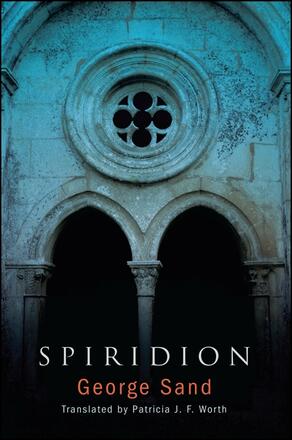
Spiridion
Alternative formats available from:
An abbot’s ghost searches for an intelligent monk to exhume his manuscript from a hellish crypt and learn the truth that monks lack two things: freedom of inquiry and benevolence.
Description
Both Gothic and philosophical, Spiridion tells the story of a young novice, Angel, who finds himself cruelly ostracized by his monastic superiors and terrified by the ghostly visits of his monastery's founder, the abbot Spiridion. Though he founded the monastery on the search for truth, Spiridion watched his once intelligent and virtuous monks degenerate into a cruel, mindless community. Turning away from the Church and withdrawing into his cell, he poured his energy into a manuscript that tells the "truth" about Roman Catholic doctrine and monastic life and provides a vision of a new and eternal gospel. The manuscript was buried with him, and his spirit now searches for a monk who is intelligent enough to exhume it from his crypt, which is guarded by hellish spirits, and share its vision with the world.
Translated into English for the first time in more than 160 years, Spiridion offers a fierce critique of Catholic doctrine as well as solutions for living with the Church's teachings. Although Sand had broken with the Church several years earlier, she nevertheless continued to believe in an omnipotent God, and her novel makes the distinction, as Angel's protector, Father Alexis, puts it, "between the authority of faith and the application of this authority in the hands of men. " As translator Patricia J. F. Worth argues in her introduction, the novel's emphasis on freedom of inquiry, benevolence, and moral reform inspired other nineteenth-century writers, including Fyodor Dostoyevsky, Matthew Arnold, and Henry James, and the novel is also relevant to twenty-first-century discussions of religious authority and rigid adherence to doctrine.
Patricia J. F. Worth is a French-English translator and private tutor of English and French. She received her master of translation studies from the Australian National University, Canberra, where she focused on nineteenth-century French literature and recent New Caledonian literature.
Reviews
"This is an excellent translation of a tale of the supernatural by a major French author. With her searing critique of Catholicism and its labyrinthine structures, Sand in Spiridion deconstructs her culture in a way similar to what Mary Shelley has done in Frankenstein. Both works are effective as horror stories, but both can also sustain serious academic inquiry, yielding still deeper rewards. Beyond academe, serious students of religion will also find that Spiridion's subject matter raises provocative theological questions. " — Lynn Hoggard, translator of Nelida by Marie d'Agoult